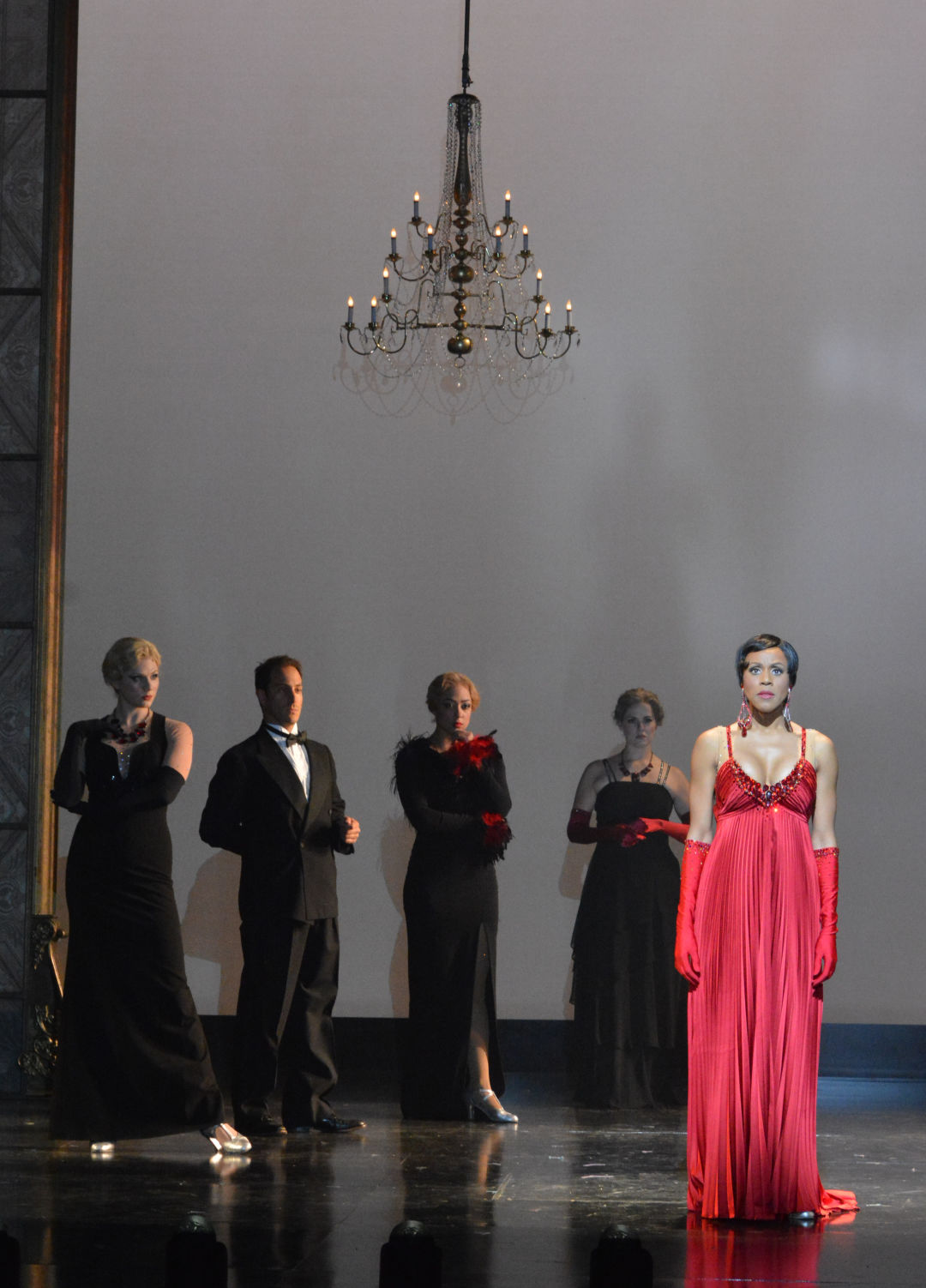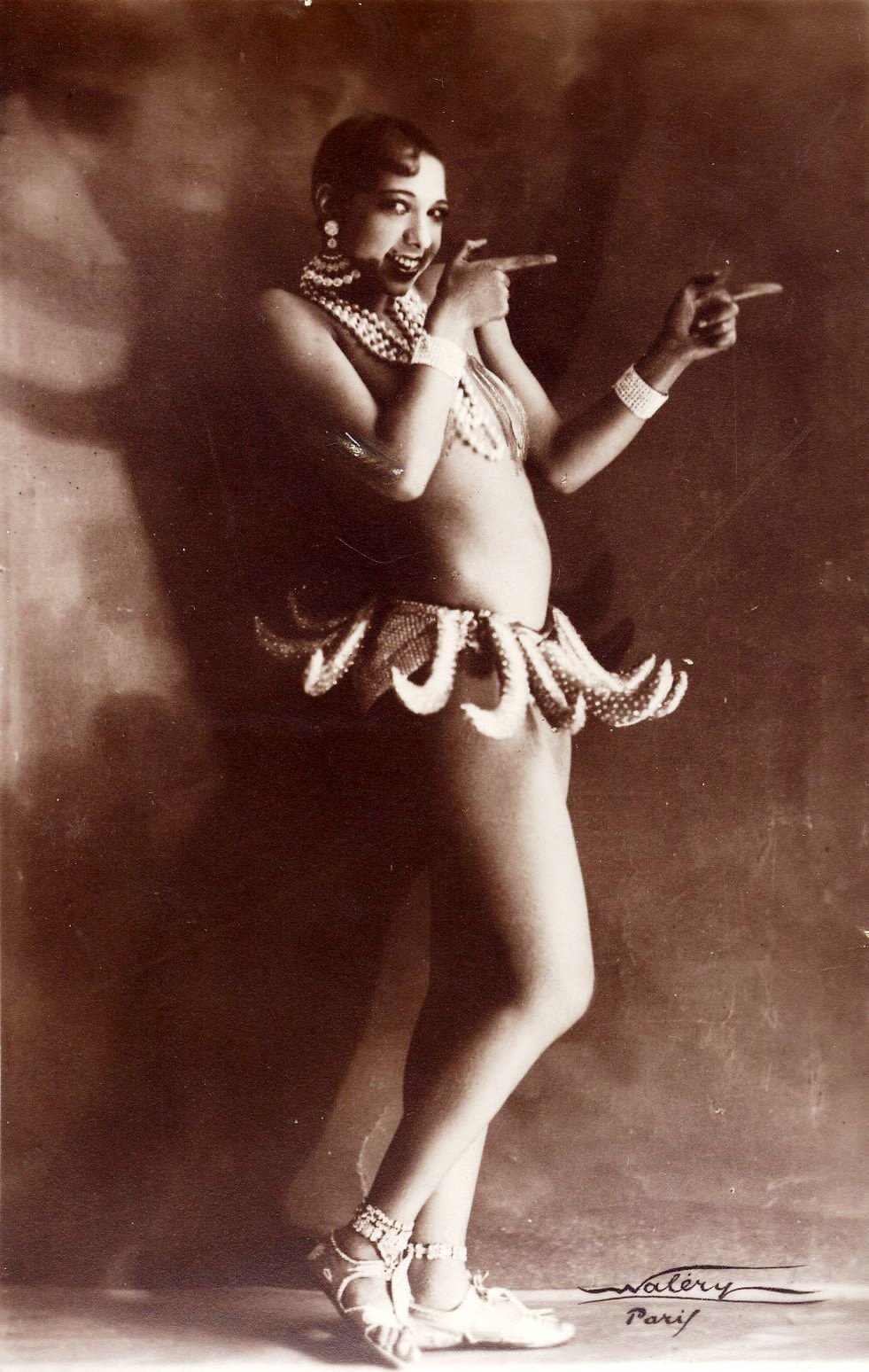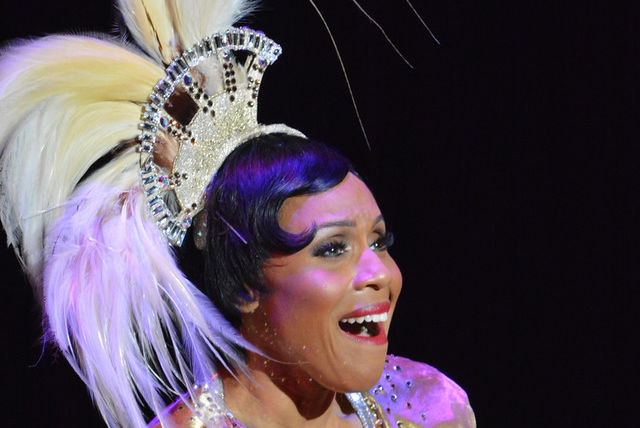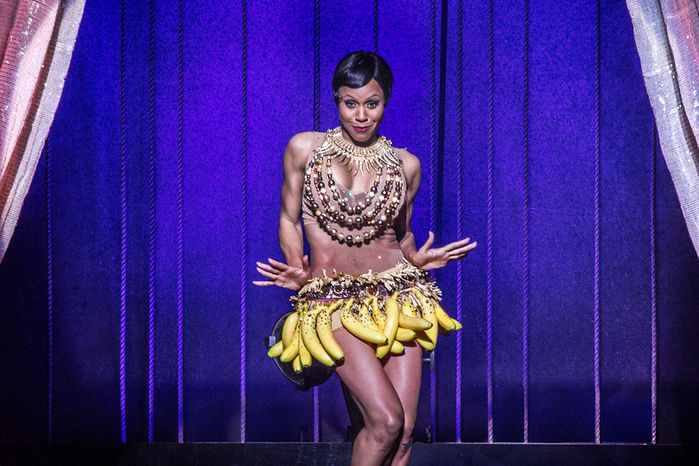Searching for Josephine

Deborah Cox as Josephine Baker in Asolo Rep's Josephine.
Image: Gary W. Sweetman
Everybody’s talking about Josephine, the new musical about Josephine Baker that the Asolo is putting on. It’s brand-new, a world premiere, and the plan is to work on it here and then take it to Broadway. I just saw it yesterday, and I must say that it is perhaps the best-looking, most elegant, most expensive show the Asolo has ever produced. The cast is excellent and it has a glossy veneer of professionalism that speaks volumes about all the talent involved.
So why didn’t it get better reviews?
All three of the local critics were respectful and complimentary, but each of them saw the same problem. Something kept the show from clicking. Deborah Cox as Josephine was hard working and sang beautifully but, as June LeBell put it, her—Josephine’s--soul wasn’t there.
I’m sure the creative team would say, give us a break, we’re still rewriting, still changing things around, still very hard at work. A hit show doesn’t happen over night.
True. But as a Baker fan from way back, someone who has read all the biographies and seen her three movies (all French) and watched every clip on YouTube, it was disappointing to see her amazing life and accomplishments reduced to (in Act One) a minor affair with a Swedish prince and (in Act Two) a comic espionage plot involving the French Resistance.
Missing were the things that made Baker who she was. Her importance in 20th century art was not explored; she was presented as a talented chanteuse with a chip on her shoulder, not the revolutionary artist who changed the world. When she first performed her famous banana dance, half naked with a skirt of bananas and a wild grin and erotic and uninhibited movements, jaws dropped. Nobody had seen anything like it. Hemingway, Picasso—all the great artists in Paris in the mid-1920s considered her their muse. It was a turning point in modern art. Art Deco, African art, the so-called lowly art forms of African-American culture that she proved were anything but lowly—she was the nexus of all this and that is what has made her immortal.

Josephine Baker in her famous banana skirt from the Folies Bergère production Un Vent de Folie.
And then there’s race. Like Jackie Robinson, and yes, even like Rosa Parks, she was leading the civil rights movement before there even was such a thing. She was the first black performer to demand respect. She wouldn’t perform before segregated audiences; she had to stay at the best hotels and eat in the best restaurants. And for this she was all but destroyed by American racism. Time magazine called her a “Negro wench.” The hostility was such that all her appearances in America were in one way or another disasters.
When I was a young kid, maybe 8 or 9 and first starting to read newspapers, I became fascinated by her famous feud with Walter Winchell. It seems that she was subtly refused service at the Stork Club when she was in America for a comeback tour. She lodged a complaint and took Winchell to task for not supporting her. He responded by calling her a communist, a sure-fire career-killer back in those days. She had to cancel the tour and return to Europe. What this woman had to go through is astonishing, and just as astonishing are the bravery and heartbreak with which she faced it.
I hope that as the creative team works on Josephine they can try and capture some of this. She was so much more than the woman they currently have on stage. I realize they are constrained by their source material, a minor biography of her life from 1939 to 1946. But to portray her as a shallow and spoiled star who somewhat redeems herself when she helps out the French underground is not really the truth. She is the pioneer on whose shoulders the fabulously successful African-American entertainment industry is now standing. She and Beyonce are sisters, and Beyonce—bless her heart—knows it. Check out her own version of the banana dance on YouTube.
What keeps Josephine’s story from being tragic is, oddly enough, her death. At age 68, she had another comeback show in Paris. She was always having comebacks, but this one was incredible. Opening night was a complete triumph. The next day they found her in bed, dead from a stroke. She was surrounded by the newspapers with their glowing reviews.
It was said she died from happiness.



